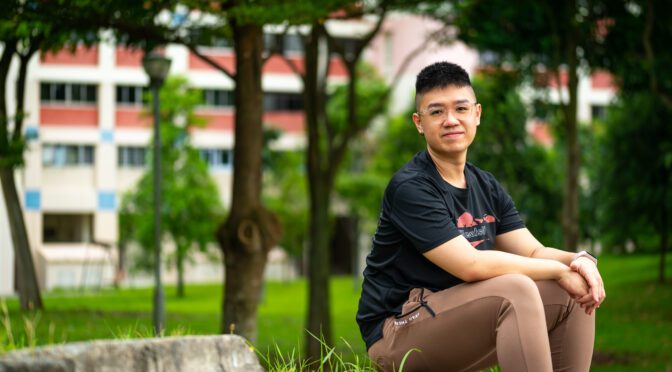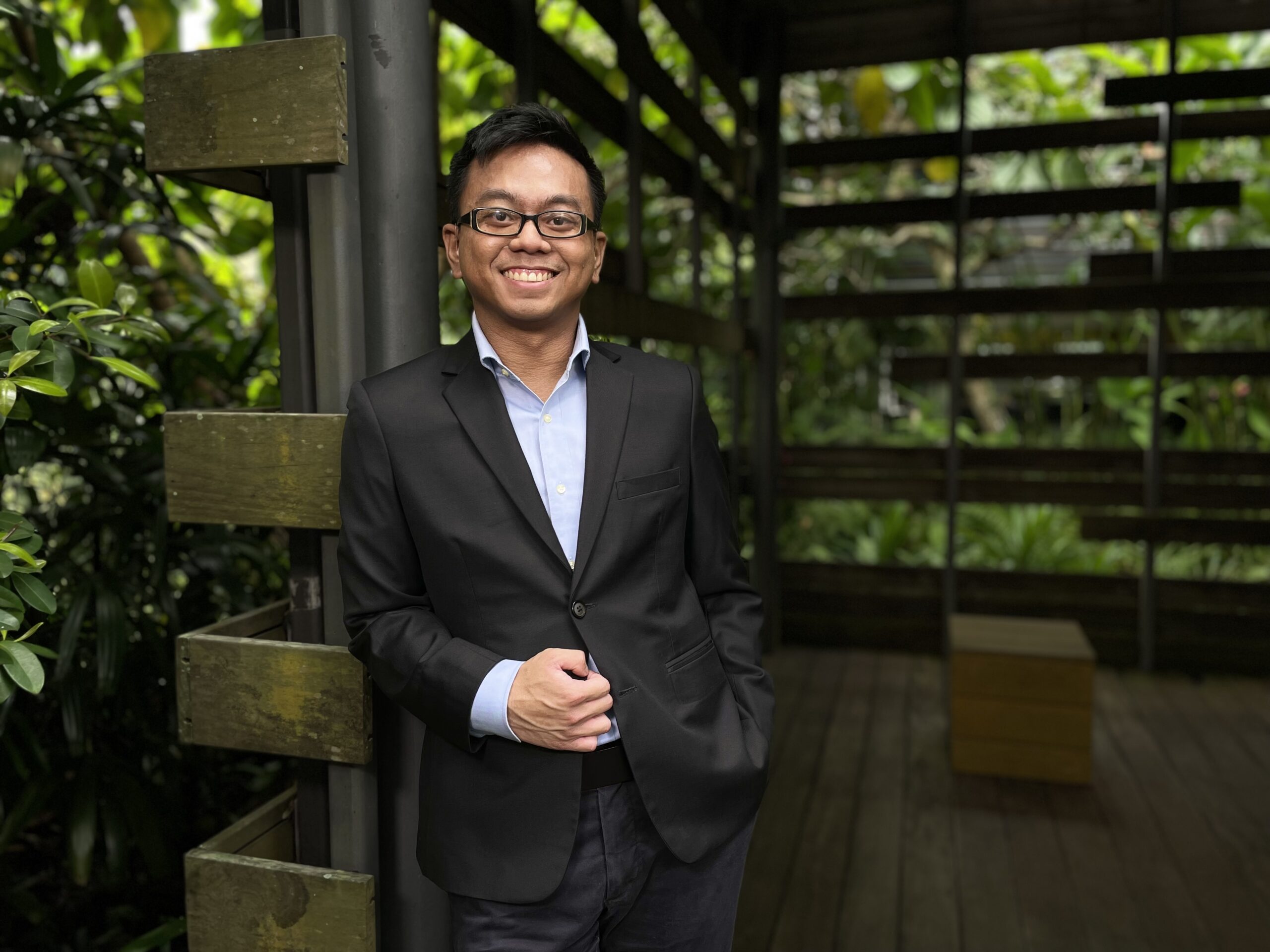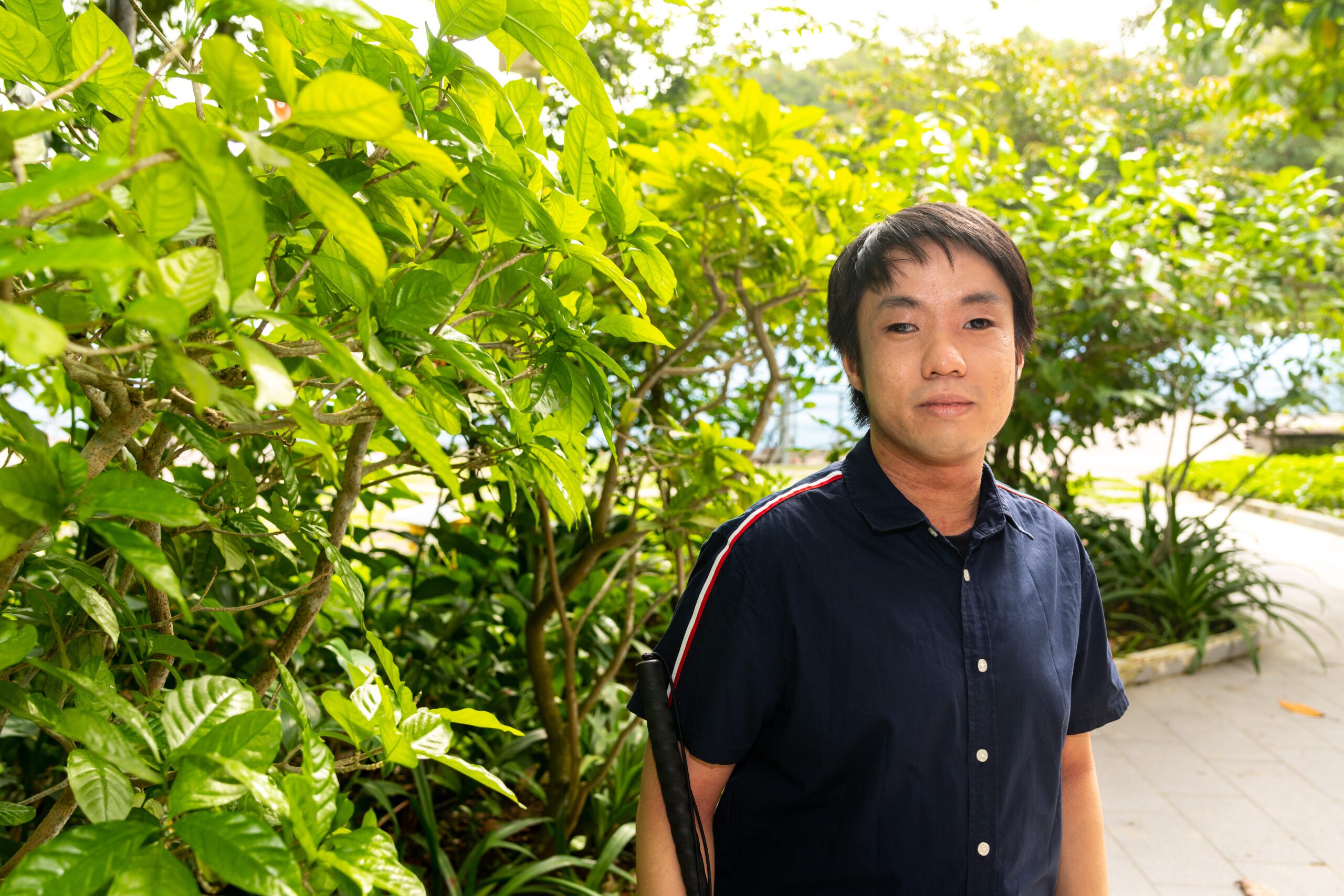Reconciling her transgender identity and sex work with religion
Sherry’s push for an egalitarian society for sex workers, and her unwavering efforts to help other sex workers should not be mistaken as an encouragement or invitation for youths to follow in her footsteps. ‘It is not that sex work is bad; it is after all the oldest profession in the world. I neither encourage nor discourage anyone from joining this line of work. But if the reason you’re getting into sex work is because you see the success of veteran transgender sex workers who lead enviable independent lives and you think: “Why can’t I follow suit?”, then that is the wrong thinking.’
Sherry says she understands the eagerness of transgender youths to want to make money on their own, so that they can pay for their hormone replacement therapies or buy material things with which they can express their true identities. But of her life decision, Sherry cautions that she has regrets. She wished she could have toughened it out in school — she dropped out because she was being bullied, and she didn’t find her place in it. She says she had no frame of reference as to what the life of a dropout would be like. ‘I took my own risk. If given a chance to do it all over again, I’d chase after my childhood ambitions, which were to be a doctor or an actress. That could have happened if I had persevered through the struggles. I regret not trying harder to make it through the so-called normal life. I regret not fighting harder for myself. I didn’t continue working in the F&B industry because I felt everyone was hating on me for wanting to transition. But that was just one group of people at one restaurant: perhaps there were others who would have accepted me. What I hope for transgender youths is not to see me as a success story, but to learn from my mistakes: to not give up as easily as I did, and instead complete their basic education, get regular employment before transitioning. I hope they can make a better future for themselves.’
Sherry is also a practising Muslim, and coming to terms with her transgender identity and sex work has not been easy. She once sought the advice of an ustaz, who told her that it is okay for transgender women to pray. ‘I fear that I won’t be able to perform my prayers. Or that I become so disillusioned that I no longer believe in heaven or hell, that there’s a price to pay in the afterlife. No matter how much I’ve sinned, I’ve always pulled back because of my fear of going to hell. The moment I’m no longer afraid to go to hell is the moment I’ll live life recklessly.’
Sherry is highly cognizant of the fact that body alteration is forbidden in Islam. ‘The way I see it is that it connects with how I want to express myself as a woman. The implants didn’t change me — I’ve always been a woman — but they make me feel whole. And I also know that He doesn’t want me to suffer any more pain to remove my implants. It’s done, so I should embrace it and deal with the consequences in the afterlife. It’s the same as someone getting tattoos — He doesn’t want him to suffer any more just to remove them.’ Out of respect to Allah SWT, Sherry says whenever she prays, she does so as a man. ‘I wear long sleeves and long pants. I tie up my hair. Who knows, maybe someday when I’m old, I’d remove the implants and leave this earth with the body I was born with.’
Committing zināʾ — unlawful sexual intercourse — and the act of sodomy were instilled in her as a sin since she was young. ‘How I come to terms with it is that sex work is something I need to do to make a living, and I cannot completely leave it. Because of my faith, the first time I had penetrative sex I was disgusted with myself. All I can do is to make peace with my sins. I ask for forgiveness as much as I can. Come Ramadan, I’m very pious and I try to abstain from doing sex work. I let go of the need to make money. I don’t make excuses. If I can’t even do that, then I think I cannot call myself a Muslim. I don’t pray with the hope that I’d be forgiven for my sins — what’s the point of asking for forgiveness when I know I’d sin again? I think it loses the meaning. I’d pray with the hope that I’m still connected to the Almighty.’
Sherry also observes the five pillars of Islam — namely, her profession of faith, praying, making alms, fasting and eventually making the pilgrimage to Mecca. ‘Ultimately, I think that God wants his servants to help one another. I believe that’s what I’m doing with Project X: I’m helping my community. I’m also being filial to my parents. Many people thought that once I’d transitioned, I’d live my own life and not care about my parents. But I proved them wrong: I support my parents financially and I take care of them. I told my mother not to let what others say about me bother her. I’m taking care of her and my father the same way that my siblings are. The only difference is that I’m a transgender woman.’
Banner photo credit: Leslie Kee


